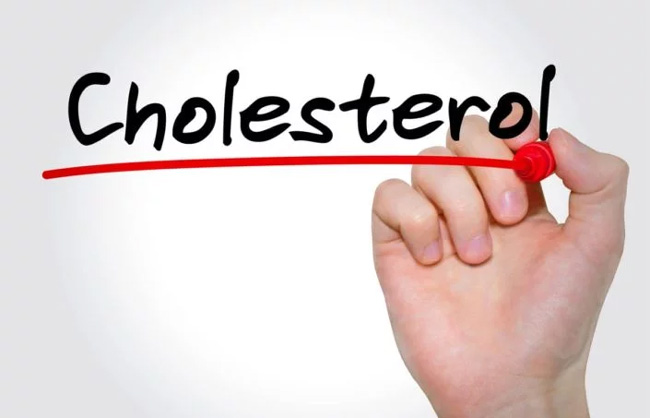What You Need To Know About Cholesterol
What You Need To Know About Cholesterol
Cholesterol is a wax-like, fatty substance which is naturally found in all the cells of the body. It is needed to synthesize vitamin D and manufacture hormones, among other things. Your body mostly manufactures all the cholesterol it needs in your liver and you can also get it in the foods you eat, such as meat, full-fat dairy, eggs, coconut oil and more.

The foods mentioned above contain dietary cholesterol, while foods with trans fats and foods that are high in saturated fat trigger the liver to make more cholesterol. This has led to an epidemic of health problems which are linked to high cholesterol levels. If you need more expert advice about cholesterol or any other health-related matters, visit the Consumer Health Review site for the latest reviews and information about health-related products, supplements and topics.
Different Types Of Cholesterol
Cholesterol is carried on lipoproteins (small ‘packages’ which are made up of fat on the outside and protein on the inside) through the circulatory system. There are two subtypes of lipoproteins, namely high-density lipoproteins (HDL) and low-density lipoproteins (LDL). LDL has been labeled ‘bad’ cholesterol because if there is too much circulating in the blood it can build up on the walls of your arteries in the form of plaque. This can impede normal blood flow to the heart and raise the risk for stroke, peripheral artery disease and heart attack. HDL, or ‘good’ cholesterol, on the other hand, can ‘pick up’ excess fat and take it to the liver. It can then be broken down and removed from the body.
Triglycerides are also a form of fat that circulates through the body. It holds on to energy and calories of the foods that you eat and can make a high LDL level even worse in terms of how much buildup tends to form on the artery walls.
Are Some People More Likely To Have Cholesterol?
Here are a few factors that might influence your cholesterol levels:
- Some people are genetically prone to high levels of cholesterol. A person can have the inherited gene from one parent or from both parents. If someone has two copies of the gene it is obviously more dangerous and rarer. These people don’t have the capacity to recycle LDL cholesterol very effectively and, therefore, often end up with very high LDL levels.
- Even though smoking does not cause high cholesterol directly, it is a major risk factor for stroke and heart disease. Combined with high LDL levels - the risk rises. Smoking lowers your levels of HDL, which helps to erase or diminish the protective effect of cholesterol. It has been found that HDL levels increase immediately in people who quit smoking. Here are ten more reasons to quit smoking.
- Your diet definitely plays a role when it comes to your heart health. By eliminating processed foods which contain trans fats as well as saturated fats and increasing your intake of unsaturated fats (which are found in nuts, avocados, seeds and olive oil) you can greatly decrease your LDL levels.
What Do My Test Results Mean?
It is important that you should not eat or drink anything for 9 to 12 hours before you go for the test as the triglyceride levels will be more accurate. The test will reveal the following:
- Total cholesterol: This is your overall score and it adds up the HDL, LDL as well as 20% of your triglyceride level. Although according to guidelines, your total score should be less than 200 mg/dl, some experts say that this figure is not really important. The ratio of good to bad cholesterol is what you should be concerned about.
- HDL: A high HDL level is linked with good heart health. An HDL level should be higher than 60 mg/dl in order for it to be protective against heart disease.
- LDL: Your LDL should be less than 100 mg/dl.
- Triglycerides: Normal levels vary by age and gender.
The Connection Between Heart Disease And Cholesterol
The relationship between cholesterol and heart disease is more complex than you might think. There are many people who have heart attacks while they don’t have high cholesterol levels. Experts say that the biggest risk factor when it comes to heart health is age. The best you can do to keep your heart healthy is to eat as much real food as possible, quit smoking, keep your blood pressure under control and exercise regularly.
Hits: 12196 | Leave a comment

















